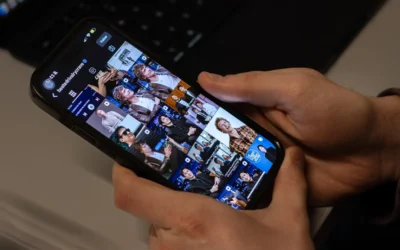The problem with being a pathological people-pleaser is that you realize you’ve been lied to your entire life. Sure, there are other problems — stress, neglecting your own needs, burnout, spiraling existential crises — but nothing cuts quite as deep as realizing you’ve grown up being spoon-fed information that just isn’t true.
The lie? “Please” isn’t the magic word. The magic word that people really want to hear is “yes.” An enthusiastic delivery is best, but a half-hearted “sure” works in a pinch.
“Yeses” can unlock doors as easily as Hermione Granger can with a quick “Alohomora.” And unlocked doors mean opportunities, “well-dones” from people you want to impress, grateful friends and family, and general approval all around. Which is great. Mostly.
Unfortunately, for people pleasers, all the benefits of saying “yes” mean that there’s a crushing amount of guilt that comes with saying “no.” After all, the whole point of being a people pleaser is pleasing people. Saying “no” tends not to do that.
This creates a dilemma. Sometimes, it’s much easier to lie than to actually say “no.” For example, if anyone ever asks me if I’ve heard a song, I say, “Yes! Of course I have!” This is a lie 60 per cent of the time. And then I usually wind up in the car with that person, the song will come on, and they will look at me expectantly as the chorus plays.
I have not yet mastered the art of singing along to a song I don’t know the words to.
Not being able to say “no” can also result in a ridiculous schedule, jam-packed full of things you don’t really want to do but feel obligated to agree to, things that will benefit your friends/partner/boss/Aloe Vera plant. It feels great to help people out, but it also means you have zero time to yourself, time you could spend watching the Great Canadian Baking Show or teaching yourself how to play “Linus and Lucy” on piano. You’re too busy crocheting a hat for your sister’s friend’s pet lizard.
But people pleasers really find themselves in a pinch when someone tries to sell them something. The question, “Should I ring this up for you?” shouldn’t be difficult to answer. First of all, you don’t even know the person who is selling you the book, or the bubble bath, or the ridiculously overpriced grad dress, and they have plenty of other customers who want to buy their products anyway. But saying “no” can still feel like juggling bars of slippery soap on a tightrope — in other words, very nearly impossible.
The good thing about being a people pleaser is that you learn to have a good sense of humour about your missteps. Did you overshare in an article because you wanted to write something that would be interesting to read? Yes. But at least you (hopefully) gave people a few minutes of entertainment.
For all you people pleasers out there, know that you deserve to tell yourself “yes” too. People won’t hate you if you say “no” now and again. Really. And if it helps, it would make me very happy if you stopped being a compulsive people pleaser after reading this article.





0 Comments